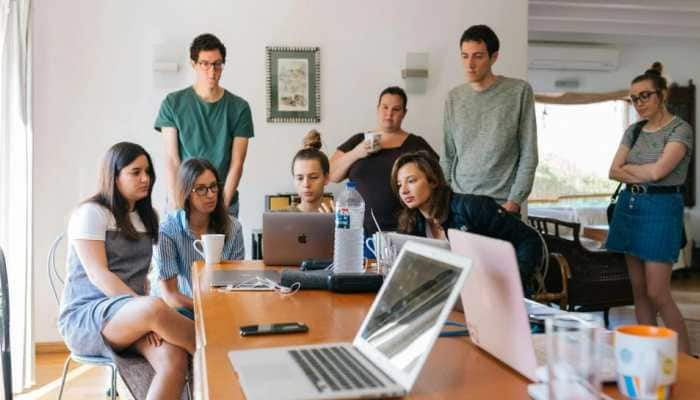Martin Crowe was a like a Grand Master and I was his chess piece in 1992, says Gavin Larsen
Gavin Larsen says if he could rein in the batsmen of 1990s era even with his military medium pace it was because of his skipper Martin Crowe's tremendous leadership style and his faith in the bowlers.
Trending Photos
)
Auckland: Gavin Larsen says if he could rein in the batsmen of 1990s era even with his military medium pace it was because of his skipper Martin Crowe's tremendous leadership style and his faith in the bowlers.
The former Kiwi player said Crowe's captaincy was very innovative during the 1992 World Cup in Australia and New Zealand.
"Martin was a superb tactician. He was very shrewd. I can call him a chess Grand Master and I was one of his chess pieces. It was a different time and things were pretty much scripted for us. We had a model that we implemented successfully," Larsen, who is the Operations Head of the NZC?s World Cup organizing committee, told PTI during an interaction.
"We had myself, Chirs Harris, Willie Watson, Rod Latham, Dipak Patel, bowling wicket to wicket with good field placements. We had a good team then. I think the manner in which game was played back then, we were right up there," said the 52-year-old, who was known for his parsimonious economy rate of 3.76 over 121 ODIs in which he got 113 wickets.
The current New Zealand team under Brendon McCullum is on a roll in the ongoing edition and Larsen was asked to compare the 'Class of 92' which reached the semi-finals before losing to Pakistan and Inzamam ul Haq in particular.
For Larsen, current captain McCullum is also a man who loves to lead by example.
"Brendon leads from front and that manifests in the manner his team plays. If you have mild captain, the attitude permeates in the team and a lot of it down can be put down to Brendon's captaincy," the Wellington based Larsen said.
Larsen's semi-final picks has been similar to what most people have predicted: New Zealand, Australia, India and South Africa.
"India are travelling nicely and it?s really nice to see how the Black Caps have shaped up," said the former medium pacer.
The New Zealand bowling attack of 1992 World Cup was filled with bowlers who were popularly named "dibbly dobbly wobblies" for the 120 kmph speed but which was very effective during that phase.
A master of varying the pace of his deliveries, Larsen was asked how he could effectively take the pace off the ball. His answer was interesting one.
"Well, may be the reason being able to take the pace off was because I couldn't bowl fast. I came through a period when pitches in New Zealand were a bit low and slow in early 90?s. In a sense those pitches were tailor-made for cricketers like myself, Harris, and players of that ilk. We bowled medium pace and batsman had to force the issue. But honestly, if I bowl that stuff today, I would be in trouble."
On plight of the owners, Fernley said it was time for the
doubters to also look at the positives.
"I think you also have to look at it from a point of view that team is in its eighth year of Formula 1, so why would you assume that it is not going to continue the way it has been over the years.
"The team has taken some very strong steps over the winter to improve its wind tunnel facility. Overall, the team has not been affected by the issues of the owners. It is actually looking to go forward. So why can't we just look at the way the team is performing for the budget that it has?" he asked.
Force India have also been waging an often lonely battle against the ever rising costs in Formula 1 besides asking for better distribution of the sport's revenues.
With no change in sight, Fernley said he has reached a point where he would want to ignore the incessant chatter on F1 finances in the paddock.
"I don't see any changes in the foreseeable future. In this scenario, you just have to continue with the discussions and continue to back your belief. The revenue model has not changed in a long time. It remains the same as to how the teams get paid and certain teams get paid more than others," he concluded.







)
)
)
)
)
)
)
)
)
)
